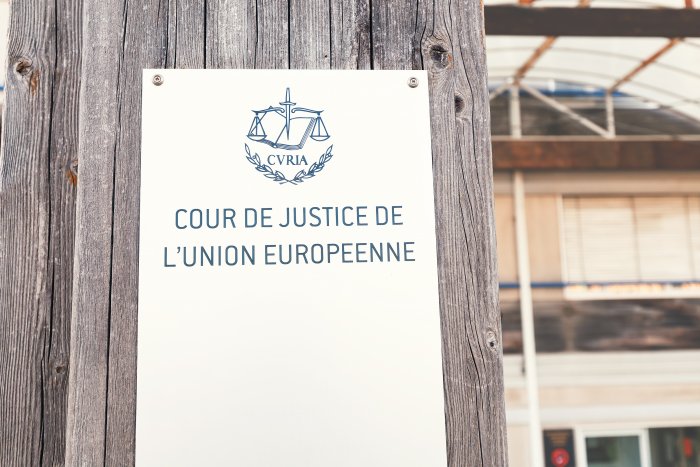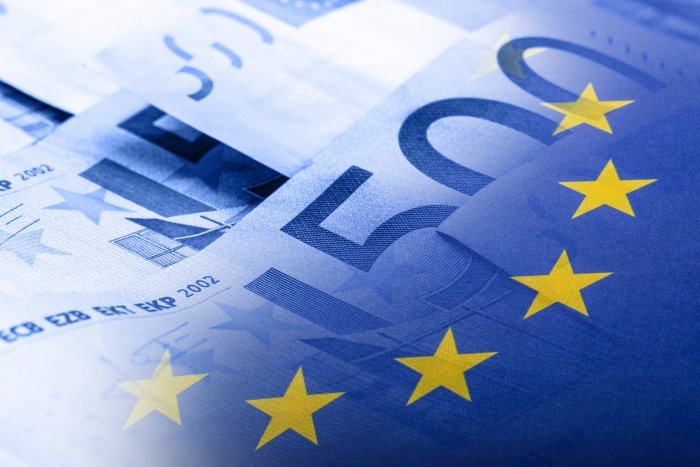Headed for recovery?

Ireland is a country with a past in terms of crisis handling. Does this make it well equipped to steer a troubled Europe out of the recession?
Would you hand over the steering wheel to someone who has already driven his or her car over a cliff? Probably not. Yet this is exactly what happened on January 1 when Ireland took over the presidency of the Council of the European Union for the next half year.
That Ireland would be the country fifth hardest hit by the crisis in the world (in terms of GDP between 2007 and 2010, according to data by Bruegel, a Brussels-based think tank) was probably not foreseen in 2007 when the current rotation for countries holding the presidency was set. (Greece was put in the same trio.) Indeed, some rough times are behind Ireland, but that is precisely why the country is well placed to take on the work of the presidency, says Irish Minister for Foreign Affairs & Trade, Tánaiste Eamon Gilmore.
With six summits and heavyweight topics like the implementation of the banking union and getting a grip on soaring youth unemployment, the new president of the council has a busy year ahead. It is a “lucky break” for Ireland that its issues mirror those of the EU, so it can push them forward all the more willingly. (As a rule, the country holding the presidency is expected to put its own interests on the back burner, and focus rather on common benefits.)
Lessons learnt
Comparing Ireland’s national and presidential agendas, there truly are many similarities.
When Ireland’s banks stood on the verge of collapse, the government used taxpayers’ money to cover losses over bank capital. This led to a surge of gross public debt from €46.3 billion to €60 bln, or from 30% to 40% of GDP between 2010 and 2011. However, lending from the European Central Bank at very low interest rates supported Irish banks greatly. The interconnectedness of the country’s banks with cross-border institutions and their exposure to Irish banks’ losses was one of the factors why Ireland could not allow its banks to fail, and it also helped make the case for a unified banking system throughout Europe. Pushing through the SSM (single supervising mechanism) legislation of now awaits the Irish.
Another tool the Irish government tried to deal with the crisis was internal devaluation (cutting wages and prices). However, the overall effect (and the impact of debt socialization) was that it led to a 13%-drop in employment. In the eurozone, the jobless rate hit a record high of 11.7% in October – with Spain and Greece leading the way with more than 25%. Just as in Spain, Latvia and other member states, many of Ireland’s jobless come from a construction sector that has contracted radically since the property bubble burst. So if anyone has an insight into unemployment and idle work sites, it is the Irish. Unemployment is also a setback to boosting growth, the most important task ahead of Ireland and Europe.
A recovery country with a recovery agenda
It may offer some hope that Ireland is already on the road of recovery and aims to be the first country to emerge from an EU/IMF bailout program. The market is cautiously optimistic; Ireland will see above 1% growth in 2013, which may be modest but is still higher than that of Germany or the eurozone (0%). The ten-year government bond spread is below 4.5% (Germany: 1.5%). Once growth is restored to an annual 2-3% rate, as predicted for 2014%, Ireland will have a better chance of fighting unemployment, which now stands at 15%. All the above figures are a cause for optimism, yet it is too early to say if Ireland can leave the bailout program this year, says Zsolt Darvas, a research fellow at Bruegel.
Many Irish claim that holding the presidency (and incurring roughly €60 bln in associated costs) is an unnecessary distraction from national problems. The question is whether rectifying problems at an international level can be an asset when discussing country adjustment deals with the European Commission. They are likely not. “The current program is evaluated based on how well the country meets the conditions set earlier,” Darvas says. “I don’t think that a good presidency could change that. Surely, the country can build an image with its performance, but markets watch if the economy is stable enough. If it is, not even a bad presidency could shake their confidence.”
What’s ahead of Ireland’s EU Presidency in the first half of 2013?
New deals
As 90% of global growth in 2020 is expected to take place outside the EU, the need to complete fresh trade deals is high, Ireland’s Minister for Foreign Affairs & Trade Eamon Gilmore has said. He added that the sealing all free trade deals currently on its table could enhance the EU’s GDP by 2%. One especially appealing potential deal is the EU-U.S. trade agreement, which the Irish government will try to broker using its strong traditional ties with the United States. The U.S.-EU trade partnership already exceeds $500 billion annually; the removal of trade barriers could increase annual trade volume by up to $120 bln, according to estimates by the U.S. Chambers of Commerce.
The digital agenda for Europe
The digital economy has been growing seven times faster than the rest of the economy. This is why Neelie Kroes, EU Commissioner for the Digital Agenda, has decided to reshuffle earlier priorities. In late December, Kroes announced to she was putting the finalizing of a new and stable broadband regulatory environment on the top of her to-do list. She also moved up the list the rollout of digital services such as eIDs and eSignatures, business mobility, eJustice, electronic health records and cultural platforms such as Europeana. The commission calculates that the introduction of eProcurement alone could save €100 billion per year, and that eGovernment could reduce administrative costs by 15-20%. If the current program is carried through, the EU’s GDP could benefit from a 5% rise in the next eight years.
SSM (a.k.a banking supervision)
Beyond the added benefits of forcing countries not to deviate from a healthy fiscal course, the main aim of a single monetary mechanism (SSM) is to enable the EU to recapitalize troubled banks directly through the European Central Bank (ECB). The SSM will be made up of the ECB and national authorities and will oversee the whole system. If implemented, something that will also be very much down to the brokering skills of the Irish, the ECB will supervise eurozone banks directly (in cooperation with national supervisory authorities). EU leaders gave the green light to the setting up of the SSM in December, but the details of putting the system into practice are still to be decided.
Unemployment – focus on the young
“With 26 million unemployed across the Union, there can be no greater priority,” said Irish Taoiseach (Prime Minister) Enda Kenny. Little wonder, as eurozone governments spend less than 0.5% of their budget on programs to help young people find a job, according to an International Labor Organization report issued in last July. During its presidency, Ireland wishes to curb surging youth unemployment by adopting practices from the Nordic countries. Youth guarantee programs in Finland or Sweden include mandatory offers of work, academic or vocational education for the young, job search coaching or start-up grants – and work at an 80% or higher success rate. Aside from pushing the Youth Employment and Youth Guarantee proposals, Ireland also plans to promote proposals for free movement across the EU and to protect workers’ rights.
Multiannual EU budget
The extraordinary EU Council meeting chaired by the Cypriot presidency last November didn’t meet its aim; heads of state were not able to reach an agreement on the next seven years’ budget. Now it is Ireland’s job to complete the talks – a thankless task from which it will gain many plaudits if it can handle them speedily and fairly, according to the Irish Times. Conflicts about what to do about agricultural funds, over which France and Germany are split, or the utilization of cohesion funds, predict long discussions. The Europeans Parliament has also objected to several parts of the negotiation.
SUPPORT THE BUDAPEST BUSINESS JOURNAL
Producing journalism that is worthy of the name is a costly business. For 27 years, the publishers, editors and reporters of the Budapest Business Journal have striven to bring you business news that works, information that you can trust, that is factual, accurate and presented without fear or favor.
Newspaper organizations across the globe have struggled to find a business model that allows them to continue to excel, without compromising their ability to perform. Most recently, some have experimented with the idea of involving their most important stakeholders, their readers.
We would like to offer that same opportunity to our readers. We would like to invite you to help us deliver the quality business journalism you require. Hit our Support the BBJ button and you can choose the how much and how often you send us your contributions.








